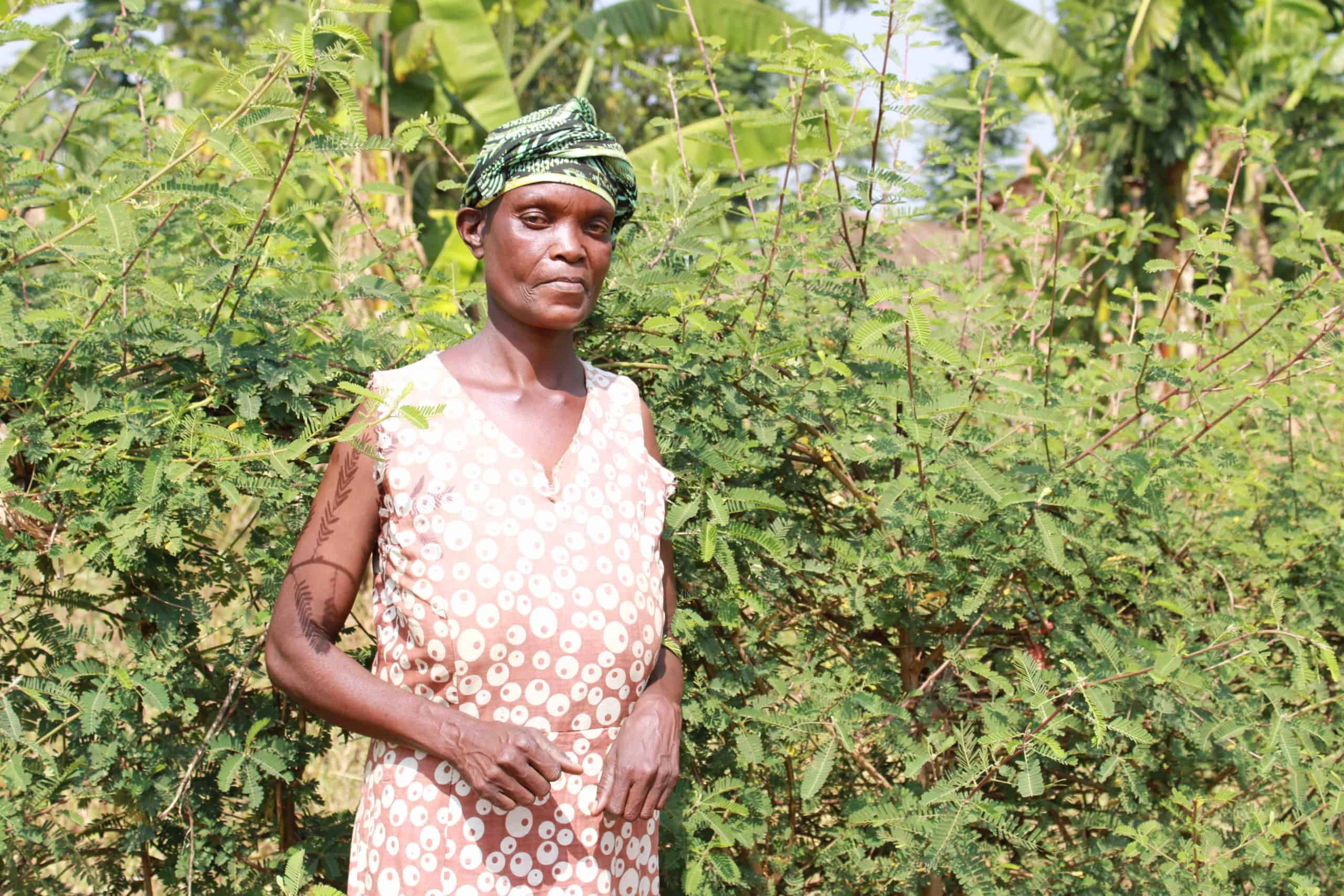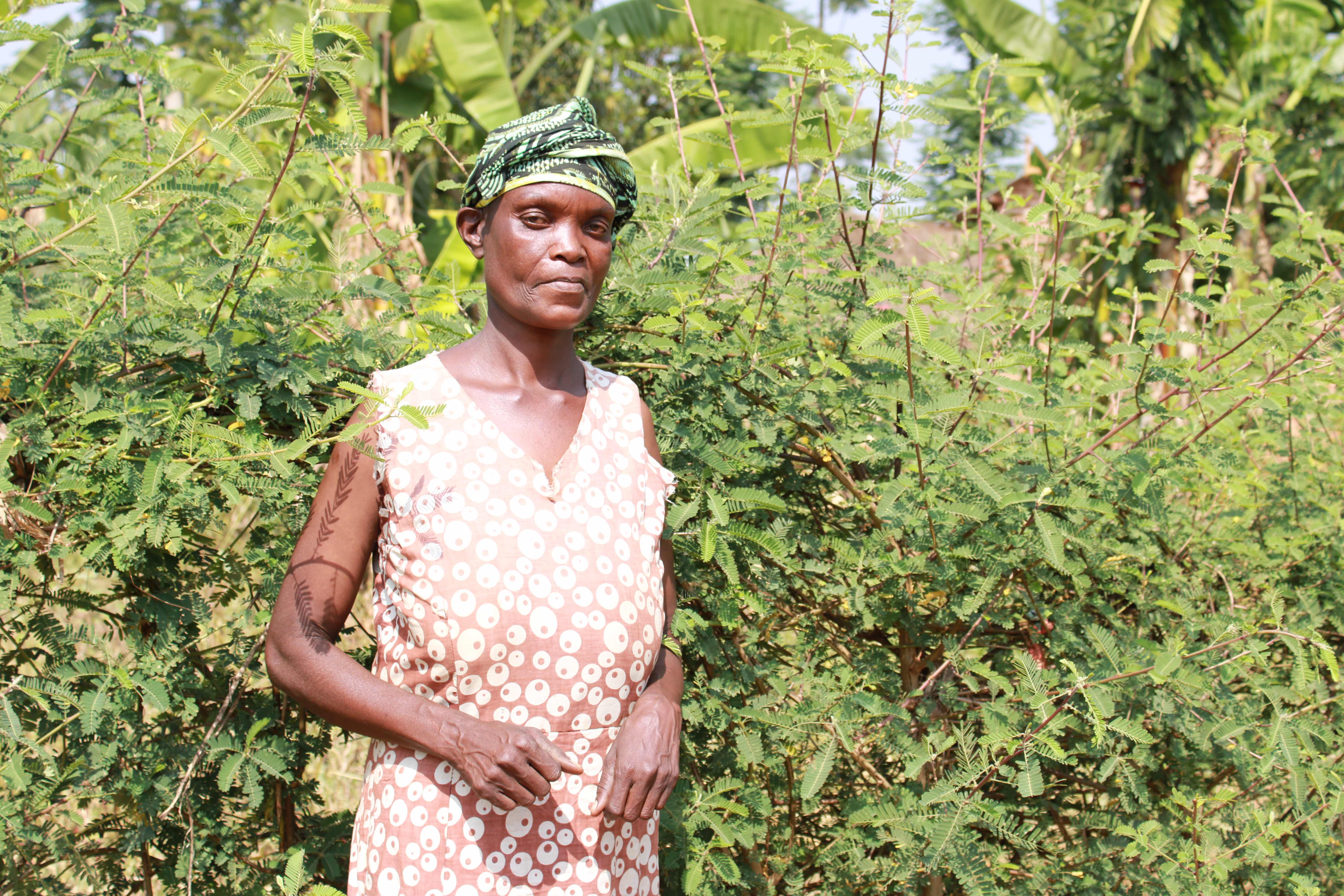
“The first day we met Ajambo, she was by the roadside crying and looking for help on how to stop animals from eating her crops. We tried to speak to her but she just took us back to her house so we could speak to her son,” says Francis Muliro, a Trees for the Future (TREES) Lead Technician. Her son “Julius explained to us the challenges and we shared information on the TREES project and how his mother could be a part of it. This is how we were able to get Ajambo to join the project.”
Ajambo has six children, four currently staying with her sister in another village. Her two youngest live at home and 10-year-old Julius helps his mom communicate with TREES staff and other project participants. Julius has accompanied his mom to each farmer training and translates for her. A little over a year into the program, this mother-son duo have successfully transformed their farm.
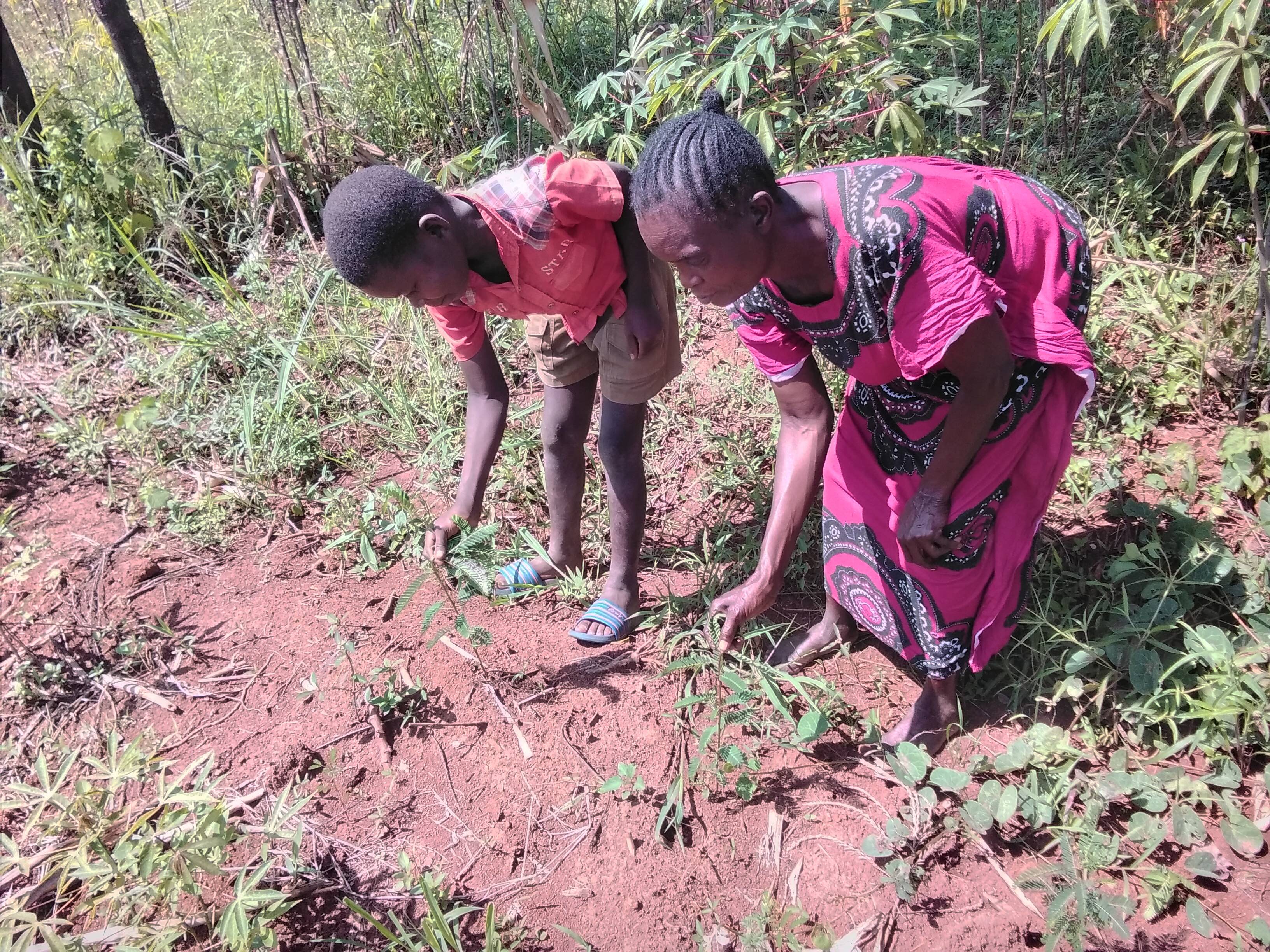
Ajambo is growing enough to feed her family and is selling vegetables like collard greens and amaranth at market. Over the course of this year, she will continue planting more vegetables and fruits in her Forest Garden.
“She is very happy that we can now use our garden to sustain the home.” Ajambo’s son shares with Muliro.
Her living fence (thousands of trees grown around the perimeter of the Forest Garden) is maturing too, which means the animals that plagued her crops before aren’t able to get to her valuable vegetables.
“Ajambo is happier, she farms with a more content heart and now has an attachment to her garden as it provides more for her,” says Auma Annet, the Lead Farmer of Ajambo’s farmer group. “She has more hope and is much more motivated to farm on her land than she was before.”
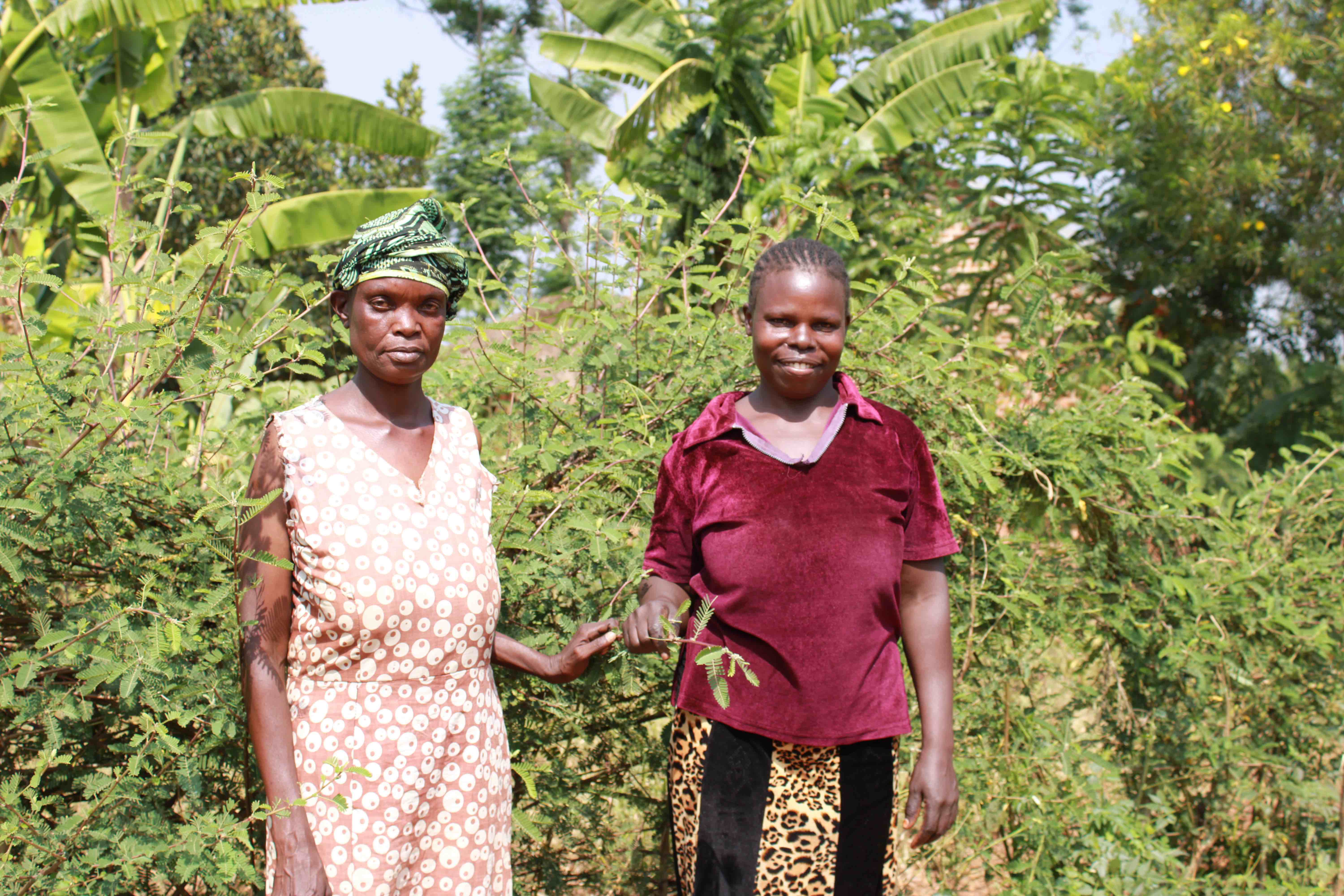
Ajambo has three years of training left. Over the next several years, she and Julius will continue to learn sustainable farming techniques and will plant even more trees and food on their land. Muliro says he also hopes that Ajambo will continue to find a community through training too.
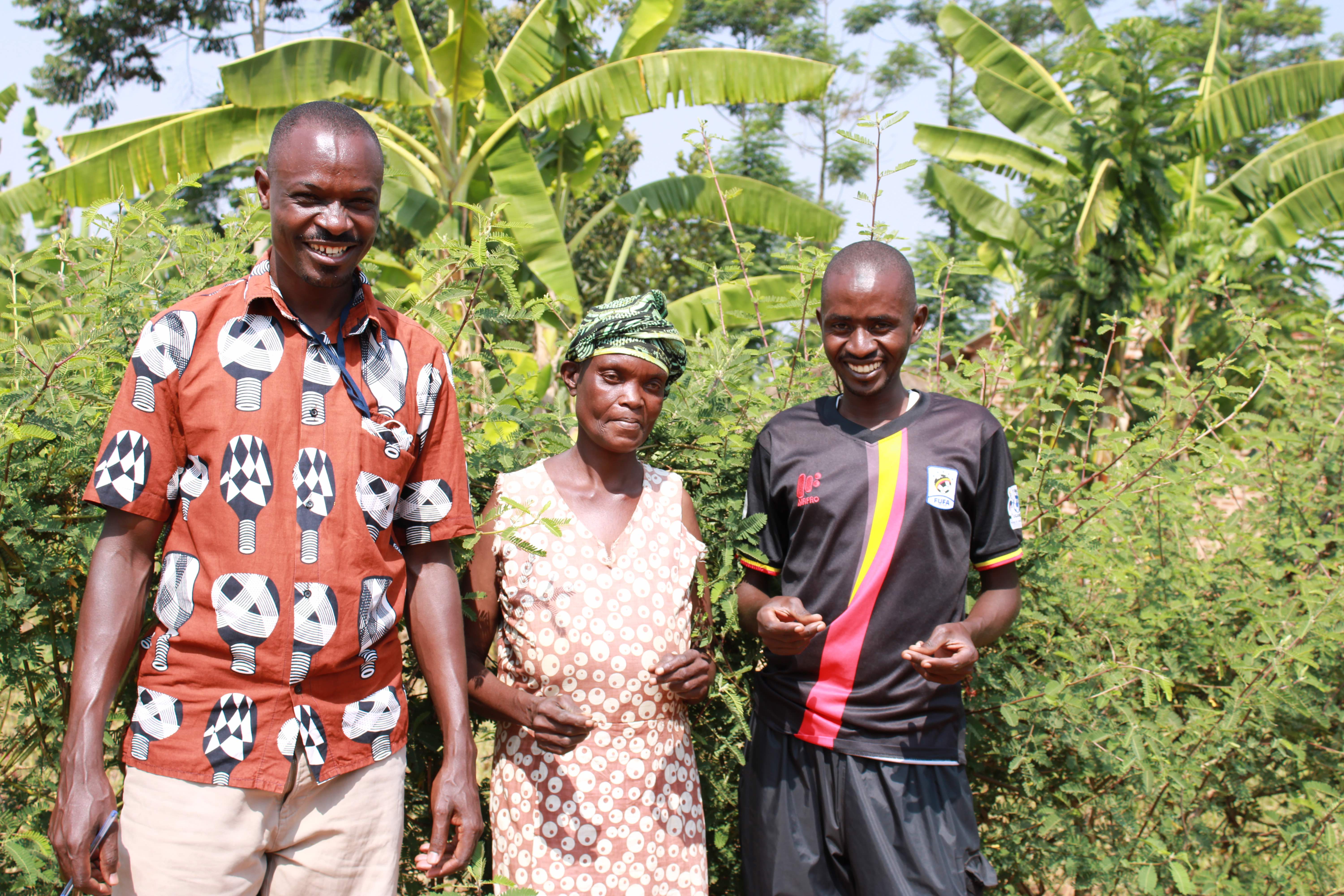
“Joining TREES has not only helped Ajambo improve her garden but also given her an opportunity to rejoin society and make new friends in the community through her farmer group,” he says. He adds that he and other TREES staff are trying to teach the group members a few ways to communicate with Ajambo so they can interact with her more.
Help bring life-changing training to farmers like Ajambo. Donate to Trees for the Future today.
